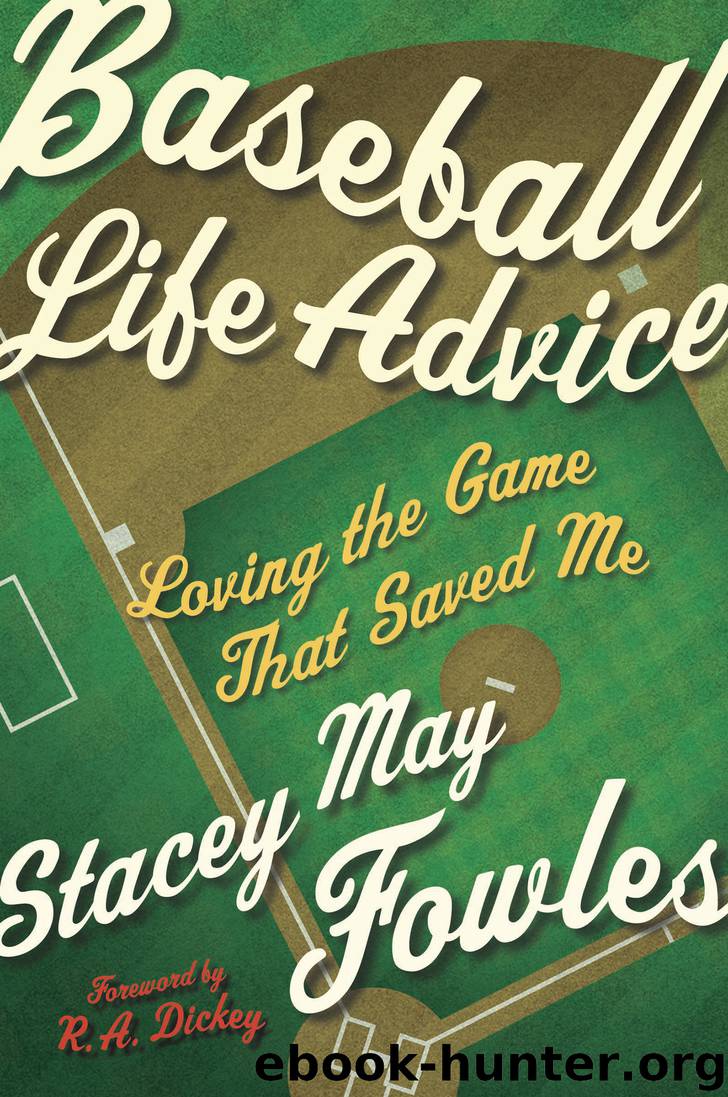Baseball Life Advice by Stacey May Fowles

Author:Stacey May Fowles
Language: eng
Format: epub
Publisher: McClelland & Stewart
Published: 2017-04-10T16:00:00+00:00
CHEATING, EMPATHY, AND MAKING SENSE OF A PED SUSPENSION
When the news broke in April 2016 that Blue Jays first baseman Chris Colabello had been suspended for eighty games after testing positive for a performance-enhancing substance, someone on Twitter gently asked me if I condoned cheating.
Though the question was jarring, I can certainly understand why it came my way. On social media, I had just extolled the virtues of empathy and understanding when it came to PEDs. I had stated that, yes, it was okay to be sad or disappointed with this news, but I also offered a reminder to vitriolic Jays (and non-Jays) fans that baseball players are human beings and that they make mistakes just like the rest of us.
“Of course I don’t condone cheating,” was my response.
Unless you are a sociopath, you know that cheating is wrong. It’s a fundamental life lesson learned the first time your dad catches you popping a ball into the hole at mini golf when you thought no one was looking. (Guilty, age six.) It’s a rule repeated from the playground to the playing field, from elementary school to university. We’re told not to butt in front of someone in a lineup, not to take a head start, and not to cut any corners. We’re discouraged from looking at a classmate’s test, from lifting passages from an essay, or from passing someone else’s ideas off as our own. In fact, “never cheat” is generally one of the very first personal codes we’re asked to adopt. Cheaters are bad, we’re told. They’re greedy, selfish people who take shortcuts, want to have it all without earning it, and steal the glory from those who have done the real work. It’s usually a pretty black-and-white tenet of human interaction, one intended to uphold an even playing field and ensure that only those who deserve it achieve success, fame, and acclaim.
Yet, like it or not, the realm of cheating can involve many shades of grey, if only because the world is not as equitable, or as fair, as we would like to believe. This doesn’t mean that cheating within the world of sports should be condoned or given a pass, or that we should try to make excuses for it. It simply means that it’s okay to look at each case in context, and attempt to understand why cheating might become something that an athlete feels they need to do. Do people cheat because they live in fear of losing their hard-won status? Because their livelihood and their identity are at stake? What kind of burden must exist, especially in the world of professional sports, to make cheating a risky yet viable option?
Given how frequently PED infractions happen in Major League Baseball (nine during the 2016 season, and thirty-five since 2010), making an effort to understand the impulse—or at least be open-minded when it comes to having a conversation about it—might be our best bet for figuring out how to prevent them.
—
The hard and fast rule of
Download
This site does not store any files on its server. We only index and link to content provided by other sites. Please contact the content providers to delete copyright contents if any and email us, we'll remove relevant links or contents immediately.
We're Going to Need More Wine by Gabrielle Union(19046)
Pimp by Iceberg Slim(14507)
Bombshells: Glamour Girls of a Lifetime by Sullivan Steve(14075)
The Radium Girls by Kate Moore(12028)
Becoming by Michelle Obama(10026)
Educated by Tara Westover(8054)
The Girl Without a Voice by Casey Watson(7889)
Wiseguy by Nicholas Pileggi(5786)
Hitman by Howie Carr(5095)
The Wind in My Hair by Masih Alinejad(5095)
The Rules Do Not Apply by Ariel Levy(4969)
Hunger by Roxane Gay(4928)
On the Front Line with the Women Who Fight Back by Stacey Dooley(4873)
Year of Yes by Shonda Rhimes(4757)
The Borden Murders by Sarah Miller(4325)
Papillon (English) by Henri Charrière(4274)
Joan of Arc by Mary Gordon(4110)
American Kingpin by Nick Bilton(3886)
Patti Smith by Just Kids(3777)
